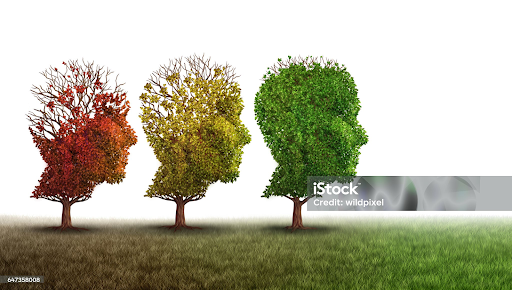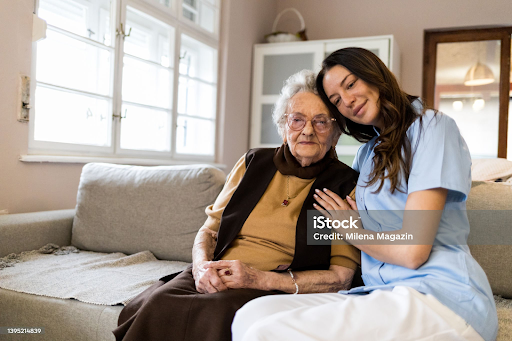Life is an adventure, and one of the greatest adventures is to embrace the journey of dementia with love, compassion, and the unshakable belief in the human spirit.” – Maria Shriver. American journalist, author, and advocate
In the corners of homes and the busy streets of our cities, a silent dilemma hovers over countless lives, affecting not only those who bear the burdens but the society as a whole. This is the dementia dilemma, a multifaceted challenge that demands our attention and empathy. Dementia, an umbrella term for a range of cognitive impairments, knows no boundaries; it transcends age, race, and status, touching the lives of a lot of people around the world. As this issue continues to grow in scope and significance, we must confront a fundamental truth: awareness of dementia is not an option; it is a shared responsibility.
Meet Sandra, a retired teacher who dedicated her life to education and nurturing young minds. At 72, she should have been enjoying her well-deserved retirement, but dementia had other plans. Her once-vibrant memories now exist like faded snapshots in the depths of her mind. Simple tasks like taking water from the fridge or recognizing her own family have become an insurmountable challenge.
Sandra’s daughter, Ada, finds herself thrust into the role of caregiver. She navigates the emotional turmoil of witnessing her mother’s cognitive decline and the physical demands of providing round-the-clock care. Sandra’s story is not unique; it’s a narrative that countless families know intimately. The dementia dilemma is not just about one individual’s struggle: it’s about the collective heartache and hope that families like Ada’s face every day.
In this article, we explore why dementia awareness is not merely a noble cause but a vital imperative that concerns us all. We delve into the importance of early detection, the urgent need to eradicate the stigma associated with dementia, the essential support required by caregivers, and the driving force behind research and innovation. As we journey through these interconnected aspects, it becomes increasingly evident that the responsibility of raising dementia awareness goes beyond age, profession, and personal experience. It is, in every sense, everyone’s duty.
Join us as we explore dementia and how it progresses, unravel the layers of the dementia dilemma, understand its complexities, and embrace the notion that dementia awareness is an ethical obligation—a responsibility that calls for action from every one of us.

Dementia and how it progresses.
Dementia is a term used to describe a group of symptoms related to a decline in memory, cognitive function, and the ability to perform everyday activities. It is not a specific disease but rather a collective term for a range of disorders that affect the brain. The most common type of dementia is Alzheimer’s disease, but there are several other types, including vascular dementia, Lewy body dementia, and frontotemporal dementia. The development and progression of dementia can vary depending on the underlying cause. However, there are some stages that are often observed according to the Alzheimer’s Society
- Early-stage (Mild)
In the early stage, individuals may function independently but experience memory lapses. Symptoms include difficulty finding the right words, forgetting names, and challenges in social or work settings. While not widely apparent, close friends and family may notice. Living well is possible through health control and prioritizing meaningful aspects of life.
- Middle-Stage (Moderate)
During middle-stage, symptoms intensify, leading to confusion, mood swings, and difficulty with tasks. Forgetfulness, moodiness, and changes in sleep patterns may occur. Home safety is crucial, and caregivers should adapt to tasks. Assistance becomes more necessary, but the individual can still participate with support.
- Late-Stage (severe)
In the final stage, severe dementia symptoms result in a loss of environmental responsiveness, communication, and movement control. Individuals require constant personal care, lose awareness of their surroundings, and undergo significant personality changes. Physical abilities decline, communication becomes difficult, and vulnerability to infections increases. Although engagement initiation diminishes, appropriate interactions like music or gentle touch can be beneficial. Caregivers may consider hospice care for comfort and dignity in the late stages.
The specific symptoms and rate of progression can vary based on the type of dementia and individual factors. Alzheimer’s disease, for example, typically progresses slowly over several years, while vascular dementia may progress more rapidly, especially if there are multiple strokes affecting the brain. The exact causes of most dementias are not fully understood, but they often involve damage to the brain cells. This damage interferes with the normal functioning of the brain, affecting memory, thinking, and behaviour.

Dementia/Dementia Dilemma:
The term “dementia dilemma” encompasses the multifaceted challenges and issues surrounding dementia, a collective struggle that affects individuals, families, and society. This complex predicament comprises several key components:
Prevalence: Dementia is a widespread issue that knows no demographic boundaries. It affects individuals of various ages, backgrounds, and social statuses. The increasing prevalence of dementia adds urgency to the dilemma.
Impact on Individuals: Dementia leads to a decline in memory, cognitive abilities, and daily functioning, resulting in significant personal challenges and frustrations. Individuals living with dementia face a poignant battle to hold on to their identities and cherished memories.
Impact on Caregivers: The dementia dilemma extends to caregivers who provide essential support to their loved ones. Caregivers often experience emotional and physical strain, navigating the challenges of caregiving while witnessing the gradual cognitive decline of their family members.
Stigma: Stigma and misconceptions about dementia compound the dilemma. These societal attitudes can lead to isolation and discrimination against individuals with dementia, making it even more challenging for them to seek the support and understanding they need.
The dementia dilemma is a reality that demands our collective awareness and action. It is not a solitary issue but a shared responsibility that necessitates understanding, empathy, and advocacy to address the complex web of challenges it presents.
Importance of Dementia Awareness:
- Early Detection:
According to The National Center for Biotechnology Information, early diagnosis of dementia allows for better management of symptoms and can lead to improved quality of life. It’s estimated that up to 50% of dementia cases go undiagnosed, highlighting the need for increased awareness to ensure early detection.
Early detection of dementia is akin to a lifeline for individuals and their families. It enables timely intervention, access to appropriate care, and the possibility of preserving cognitive function for a more extended period. When society is aware of the signs and symptoms of dementia, it becomes more likely that individuals showing early signs seek medical attention, leading to a higher chance of receiving effective treatment and support.
- Reducing Stigma:
Results from the global survey led by Alzheimer’s Disease International (ADI), and the London School of Economics (LSE) on dementia-related stigma found that 84 percent of people living with dementia reported experiencing stigma and discrimination in at least one area of their life. Raising awareness is vital in combating these negative attitudes and fostering a more inclusive society.
The stigma associated with dementia perpetuates isolation and discrimination, making life even more challenging for those living with the condition. Raising awareness helps dispel misconceptions and fosters a more compassionate and understanding society. It promotes inclusion, reducing the emotional burden on those affected by dementia and their families. By educating the public about the realities of dementia, we can create a more supportive and empathetic environment.

- Support for Caregivers:
Numerous studies report that caring for a person with dementia is more stressful than caring for a person with a physical disability. Such caregivers often require assistance and resources to cope effectively.
Caregivers are the unsung heroes in the dementia journey. They bear significant emotional and physical burdens, providing essential care and support to their loved ones. Dementia awareness is critical in acknowledging the challenges faced by caregivers and ensuring they have access to the support, information, and resources needed to navigate their caregiving roles effectively. When society understands the demands on caregivers, it becomes more inclined to provide assistance, respite, and recognition for their invaluable work.

- Promoting Research:
The Alzheimer’s Association indicates that In 2023, Alzheimer’s and other dementias will cost the nation $345 billion. By 2050, these costs could rise to nearly $1 trillion. Increased dementia awareness can lead to more significant investments in research, aiming to find effective treatments and prevention strategies.
Dementia’s growing economic burden underscores the urgency of investing in research to find effective treatments and prevention strategies. Greater public awareness leads to increased funding for research initiatives, encouraging collaboration between scientists, medical professionals, and policymakers. By supporting research efforts, we can work towards a future with improved treatments and, ideally, a world without dementia.

Summing it all up
Dementia awareness is not just an abstract concept; it is a tangible force for positive change in the lives of individuals and families affected by it. It is a collective responsibility that transcends age, profession, and personal experience. By understanding the multifaceted challenges of the dementia dilemma and promoting awareness, we pave the way for a more compassionate and supportive society in the journey to unravel the layers of the dementia dilemma. let us all embrace the ethical obligation to make a difference—it is, in every sense, everyone’s duty.
At Balance of Creation, we understand that dementia is a significant and growing concern in our society, affecting millions of lives, and we are committed to providing knowledge and support to those impacted by dementia and everyone in society. We offer a diverse range of over 80 healthcare courses, including comprehensive dementia awareness programs, designed, and delivered by experienced professionals. Visit our website at https://www.balanceofcreation.online/ to embark on your educational journey. Don’t delay; act today to create a more compassionate, informed, and supportive environment for all those touched by dementia. Together, we can make a difference.






